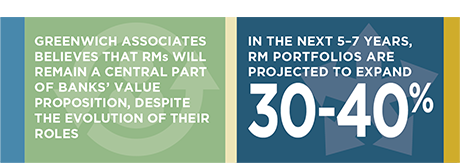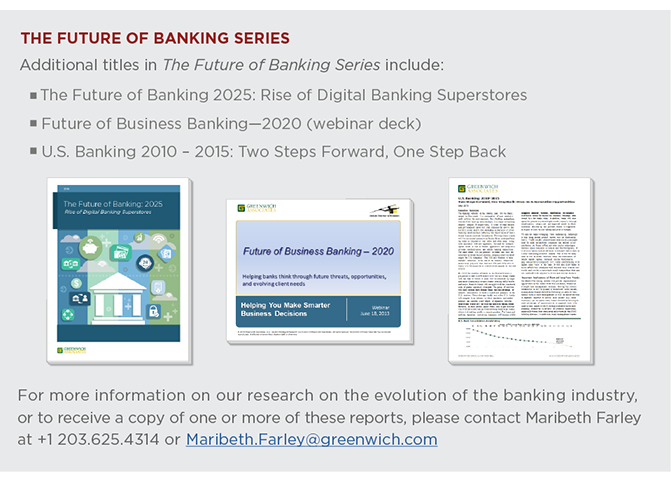
Dramatic advances in artificial intelligence (AI) are quickly changing this technology from a banking buzzword to a critical capability that helps drive better outcomes for clients. In the coming years, AI—including machine learning, robotics and other technology platforms—will have a profound impact on nearly all aspects of the banking industry.
This report focuses on the future of “the banker” and presents a series of ideas to guide bank leadership teams in leveraging this new technology to: 1) increase the effectiveness of bankers, 2) help solve for shortfalls in consistency of banker advisory skills, and 3) differentiate their banks by delivering high value-added intellectual capital to clients.
The banking industry and the process by which banks service customers and provide advice to clients will pass through four distinct stages:
1. Analog Banking
2. Business Intelligence
3. Artificial Intelligence
4. Advanced Artificial Intelligence
The next couple of years should be good ones for highly skilled bankers. In fact, as banks scramble to differentiate their offerings by providing value-added advice in a time of increasing product commoditization, banks will have trouble finding bankers talented enough to meet their new requirements.
Over a longer horizon, AI platforms will begin to replicate many of the functions now performed by bankers, shifting some banking jobs toward technology and potentially lowering front-office compensation. The leading banks’ AI systems will generate high-level, customized recommendations and advice across many lines of business. This will help companies optimize efficiencies throughout their corporate finance and treasury functions and pinpoint the best growth opportunities based on market conditions and competitive pressures. The AI-aided advice can help anticipate clients needs—even identifying potential M&A targets and partners.

As this change plays out, the number of front-office banker jobs will decrease, the portfolios of individual bankers will expand meaningfully, and the positions of certain types of relationship managers (RMs) and other bankers will diminish in importance. Many roles will shift to more junior professionals, who can manage the bank’s tech-focused offerings at a lower cost to the banks.
However, Greenwich Associates believes that bankers/RMs will remain a central part of banks’ value proposition, despite the evolution of their roles. Even over the long term, human RMs will be required in a range of roles. These include explaining to commercial customers how the banks’ AI and other digital tools work, managing challenging onboarding and implementation projects, navigating inside the bank to marshal required resources and deliver effective solutions, and—perhaps most importantly—picking up the phone/Skype when corporate treasurers, CFOs and other company officials call with questions and requests.
By providing rapid response times, effective error resolution and a human face to an essential business partner, bankers will ensure their central role for decades to come.


